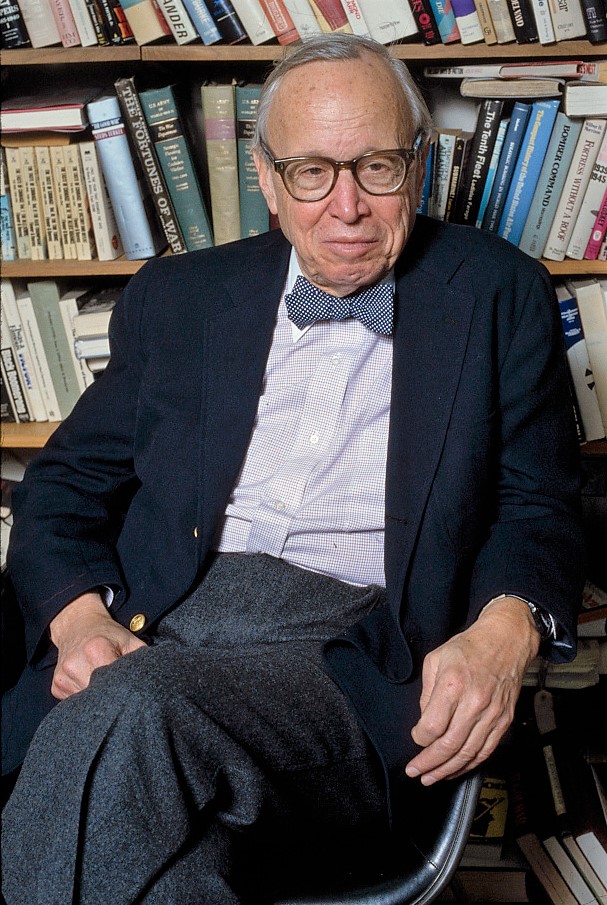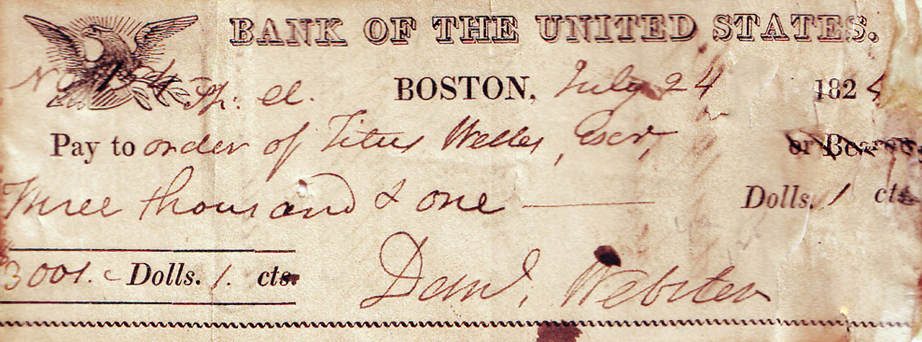|
Progressive Historians
The Progressive historians were a group of 20th century historians of the United States associated with a Historiography, historiographical tradition that embraced an economic interpretation of American history. Most prominent among these was Charles A. Beard, who was influential in academia and with the general public. History From 1910 to the 1940s, "Progressive" historiography was dominant, especially in political studies. It stressed the central importance of class conflict in American history. Important leaders included Vernon L. Parrington, Carl L. Becker, Arthur M. Schlesinger, Sr., John Hicks, and C. Vann Woodward. The movement established a strong base at the History Department at the University of Wisconsin with Curtis Nettels, William Hesseltine, Merle Curti, Howard K. Beale, Merrill Jensen, Fred Harvey Harrington (who became the university president), William Appleman Williams, and a host of graduate students. Charles A. Beard was the most prominent representative with ... [...More Info...] [...Related Items...] OR: [Wikipedia] [Google] [Baidu] |
Historiography
Historiography is the study of the methods of historians in developing history as an academic discipline, and by extension is any body of historical work on a particular subject. The historiography of a specific topic covers how historians have studied that topic using particular sources, techniques, and theoretical approaches. Scholars discuss historiography by topic—such as the historiography of the United Kingdom, that of WWII, the British Empire, early Islam, and China—and different approaches and genres, such as political history and social history. Beginning in the nineteenth century, with the development of academic history, there developed a body of historiographic literature. The extent to which historians are influenced by their own groups and loyalties—such as to their nation state—remains a debated question. In the ancient world, chronological annals were produced in civilizations such as ancient Egypt and Mesopotamia. However, the discipline of his ... [...More Info...] [...Related Items...] OR: [Wikipedia] [Google] [Baidu] |
Charles A
Charles is a masculine given name predominantly found in English and French speaking countries. It is from the French form ''Charles'' of the Proto-Germanic name (in runic alphabet) or ''*karilaz'' (in Latin alphabet), whose meaning was "free man". The Old English descendant of this word was '' Ċearl'' or ''Ċeorl'', as the name of King Cearl of Mercia, that disappeared after the Norman conquest of England. The name was notably borne by Charlemagne (Charles the Great), and was at the time Latinized as ''Karolus'' (as in ''Vita Karoli Magni''), later also as '' Carolus''. Some Germanic languages, for example Dutch and German, have retained the word in two separate senses. In the particular case of Dutch, ''Karel'' refers to the given name, whereas the noun ''kerel'' means "a bloke, fellow, man". Etymology The name's etymology is a Common Germanic noun ''*karilaz'' meaning "free man", which survives in English as churl (< Old English ''ċeorl''), which developed its depr ... [...More Info...] [...Related Items...] OR: [Wikipedia] [Google] [Baidu] |
Vernon L
Vernon may refer to: Places Australia *Vernon County, New South Wales Canada *Vernon, British Columbia, a city *Vernon, Ontario France * Vernon, Ardèche *Vernon, Eure United States * Vernon, Alabama * Vernon, Arizona * Vernon, California * Lake Vernon, California * Vernon, Colorado * Vernon, Connecticut * Vernon, Delaware * Vernon, Florida, a city * Vernon Lake (Idaho) * Vernon, Illinois * Vernon, Indiana * Vernon, Kansas * Vernon Community, Hestand, Kentucky * Vernon Parish, Louisiana ** Vernon Lake, a man-made lake in the parish * Vernon, Michigan * Vernon Township, Isabella County, Michigan * Vernon Township, Shiawassee County, Michigan * Vernon, Jasper County, Mississippi * Vernon, Madison County, Mississippi * Vernon, Winston County, Mississippi * Vernon Township, New Jersey * Vernon (town), New York ** Vernon (village), New York * Vernon (Mount Olive, North Carolina), a historic plantation house * Vernon Township, Crawford County, Ohio * Vernon Township, Scioto Cou ... [...More Info...] [...Related Items...] OR: [Wikipedia] [Google] [Baidu] |
Carl L
Carl may refer to: *Carl, Georgia, city in USA *Carl, West Virginia, an unincorporated community *Carl (name), includes info about the name, variations of the name, and a list of people with the name *Carl², a TV series * "Carl", an episode of television series ''Aqua Teen Hunger Force'' * An informal nickname for a student or alum of Carleton College CARL may refer to: *Canadian Association of Research Libraries *Colorado Alliance of Research Libraries See also * Carle (other) *Charles *Carle, a surname *Karl (other) *Karle (other) Karle may refer to: Places * Karle (Svitavy District), a municipality and village in the Czech Republic * Karli, India, a town in Maharashtra, India ** Karla Caves, a complex of Buddhist cave shrines * Karle, Belgaum, a settlement in Belgaum d ... {{disambig ja:カール zh:卡尔 ... [...More Info...] [...Related Items...] OR: [Wikipedia] [Google] [Baidu] |
Arthur M
Arthur is a common male given name of Brythonic origin. Its popularity derives from it being the name of the legendary hero King Arthur. The etymology is disputed. It may derive from the Celtic ''Artos'' meaning “Bear”. Another theory, more widely believed, is that the name is derived from the Roman clan '' Artorius'' who lived in Roman Britain for centuries. A common spelling variant used in many Slavic, Romance, and Germanic languages is Artur. In Spanish and Italian it is Arturo. Etymology The earliest datable attestation of the name Arthur is in the early 9th century Welsh-Latin text ''Historia Brittonum'', where it refers to a circa 5th to 6th-century Briton general who fought against the invading Saxons, and who later gave rise to the famous King Arthur of medieval legend and literature. A possible earlier mention of the same man is to be found in the epic Welsh poem ''Y Gododdin'' by Aneirin, which some scholars assign to the late 6th century, though this is still a ... [...More Info...] [...Related Items...] OR: [Wikipedia] [Google] [Baidu] |
Merle Curti
Merle Eugene Curti (September 15, 1897 – March 9, 1996) was a leading American historian, who taught many graduate students at Columbia University and the University of Wisconsin, and was a leader in developing the fields of social history and intellectual history. He directed 86 finished Ph.D. dissertations and had an unusually wide range of correspondents. As a Progressive historian he was deeply committed to democracy, and to the Turnerian thesis that social and economic forces shape American life, thought and character. He was a pioneer in peace studies, intellectual history, and social history, and helped develop quantitative methods based on census samples as a tool in historical research. Life Curti was born in Papillion, Nebraska, a suburb of Omaha, on September 15, 1897. His parents were John Eugene Curti, an immigrant from Switzerland, and Alice Hunt, a Yankee from Vermont. Curti attended high school in Omaha then obtained a bachelor's degree in 1920 from Harva ... [...More Info...] [...Related Items...] OR: [Wikipedia] [Google] [Baidu] |
Howard K
Howard is an English-language given name originating from Old French Huard (or Houard) from a Germanic source similar to Old High German ''*Hugihard'' "heart-brave", or ''*Hoh-ward'', literally "high defender; chief guardian". It is also probably in some cases a confusion with the Old Norse cognate ''Haward'' (''Hávarðr''), which means "high guard" and as a surname also with the unrelated Hayward. In some rare cases it is from the Old English ''eowu hierde'' "ewe herd". In Anglo-Norman the French digram ''-ou-'' was often rendered as ''-ow-'' such as ''tour'' → ''tower'', ''flour'' (western variant form of ''fleur'') → ''flower'', etc. (with svarabakhti). A diminutive is "Howie" and its shortened form is "Ward" (most common in the 19th century). Between 1900 and 1960, Howard ranked in the U.S. Top 200; between 1960 and 1990, it ranked in the U.S. Top 400; between 1990 and 2004, it ranked in the U.S. Top 600. People with the given name Howard or its variants include: Given ... [...More Info...] [...Related Items...] OR: [Wikipedia] [Google] [Baidu] |
William Appleman Williams
William Appleman Williams (June 12, 1921 – March 5, 1990) was one of the 20th century's most prominent revisionist historians of American diplomacy. He achieved the height of his influence while on the faculty of the department of history at the University of Wisconsin–Madison and is considered to be the foremost member of the "Wisconsin School" of diplomatic history. Early life and education Williams was born and raised in the small town of Atlantic, Iowa. He attended Kemper Military School in Boonville, Missouri, then earned a degree in engineering at the United States Naval Academy in Annapolis. He graduated and was commissioned an ensign in 1945. After serving in the South Pacific as an executive officer aboard a Landing Ship Medium, he was stationed in Corpus Christi, Texas, where he made plans to become an aviator like his father. His father had been in the Army Air Corps until he died in a plane crash in 1929. A wartime back injury caused enormous pain and ended ... [...More Info...] [...Related Items...] OR: [Wikipedia] [Google] [Baidu] |
Arthur Schlesinger, Jr
Arthur Meier Schlesinger Jr. (; born Arthur Bancroft Schlesinger; October 15, 1917 – February 28, 2007) was an American historian, social critic, and public intellectual. The son of the influential historian Arthur M. Schlesinger Sr. and a specialist in American history, much of Schlesinger's work explored the history of 20th-century American liberalism. In particular, his work focused on leaders such as Harry S. Truman, Franklin D. Roosevelt, John F. Kennedy, and Robert F. Kennedy. In the 1952 and 1956 presidential campaigns, he was a primary speechwriter and adviser to the Democratic presidential nominee, Adlai Stevenson II. Schlesinger served as special assistant and "court historian" to President Kennedy from 1961 to 1963. He wrote a detailed account of the Kennedy administration, from the 1960 presidential campaign to the president's state funeral, titled '' A Thousand Days: John F. Kennedy in the White House'', which won the 1966 Pulitzer Prize for Biography or Autobiogra ... [...More Info...] [...Related Items...] OR: [Wikipedia] [Google] [Baidu] |
Second Bank Of The United States
The Second Bank of the United States was the second federally authorized Hamiltonian national bank in the United States. Located in Philadelphia, Pennsylvania, the bank was chartered from February 1816 to January 1836.. The Bank's formal name, according to section 9 of its charter as passed by Congress, was "The President Directors and Company of the Bank of the United States". While other banks in the US were chartered by and only allowed to have branches in a single state, it was authorized to have branches in multiple states and lend money to the US government. A private corporation with public duties, the Bank handled all fiscal transactions for the U.S. Government, and was accountable to Congress and the U.S. Treasury. Twenty percent of its capital was owned by the federal government, the Bank's single largest stockholder.. Four thousand private investors held 80 percent of the Bank's capital, including three thousand Europeans. The bulk of the stocks were held by a few hundr ... [...More Info...] [...Related Items...] OR: [Wikipedia] [Google] [Baidu] |


